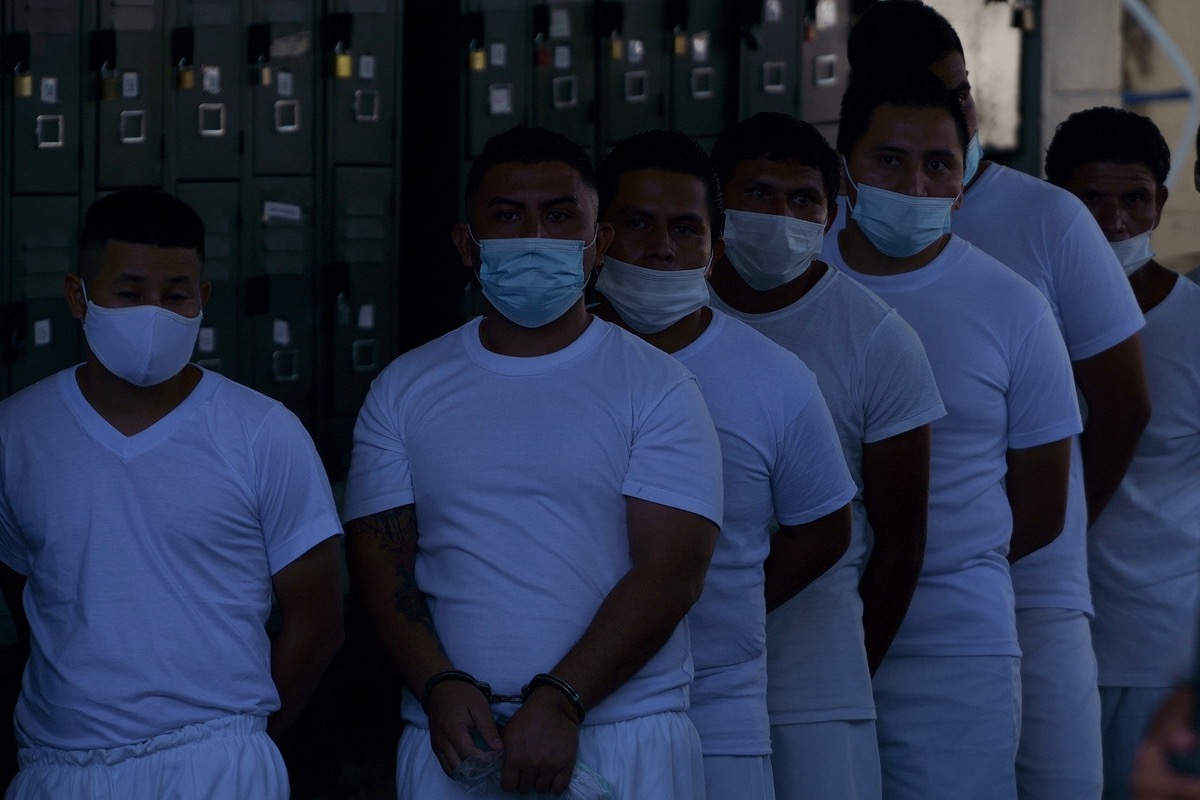El Salvador, in Brief: Leaked court documents reveal that wrongful arrests are on the rise as the country courses its fifth month in a state of exception that suspended multiple constitutional rights. As families protest police abuse against their relatives and due process violations become widespread, the Salvadoran vice president says that “in a war” there are always “innocent victims.”
Arrest First, Investigate Later
Looked nervous. Looks like a gang member. Police profile says he’s a gang member. Family member is a gang member. Social media accusations. Ran from police. Has tattoos. Was previously convicted.
These are official reasons for the arrest of almost 700 Salvadorans listed in a trove of sealed courtroom dossiers leaked to El Faro’s Efren Lemus and Gabriela Cáceres. The 1,200 pages reveal the arbitrary detention of hundreds of people from distressed communities in April in the ongoing policing frenzy branded by the government as a “war against gangs.”
The police report over 49,000 arrests since President Nayib Bukele ordered a state of exception in March, drawing reports of torture and at least 63 in-custody deaths through July 17, per monitor Cristosal. The leaked dossiers paint a damning picture of authorities relying mostly on police profiles and anonymous sources to accuse detainees of “illicit association.” No other evidence was included or needed to achieve pre-trial detention.
“We know of cases where people had no connection to the gangs, but [at the time of arrest] police created profiles on the spot, making up aliases for them,” police union chief Marvin Reyes told El Faro, adding that agents refusing to carry out arrests have been threatened with transfer to remote parts of the country, or with more work hours.
Formerly exonerated people are finding themselves in custody again, while others who already served their sentences have been rearrested and charged with the same crime they were convicted of years ago, Lemus and Cáceres documented.
Perhaps the most iconic government response to reports of systematic police abuse is that of Vice President Félix Ulloa: “When you have an operation that’s 95 percent successful, without a doubt it’s the right course of action,” he told the press on July 8. “In a war, there will always be innocent victims and collateral damage that you have to correct, that aren’t justified.”
A Prison for 40,000
Those alleging abuse have found little to no recourse in Salvadoran courts. This year reported violations of detainees’ habeas corpus rights have doubled the historical average of the last 27 years of available statistics, reports El Faro’s Gabriel Labrador. Supreme Court magistrates imposed by Bukele have not considered a single filing, though lower courts have done so in a handful of cases.
“Judicial independence in El Salvador has been seriously and extensively undermined, citizens have been left without protection,” wrote the Due Process of Law Foundation in a July 13 report, “and their rights are contingent on the interests of an authoritarian power.”
The illegal replacement of Supreme Court magistrates in May 2021 will now even affect autopsies. In July, Chief Justice Óscar López Jerez told newspaper La Prensa Gráfica that Medicina Legal, the coroner’s office, will now receive “help” from the Army, who proved its blind loyalty to Bukele in the military occupation of the legislature in February 2020 and enforcing the pandemic quarantine, in contravention of high court orders.
The anti-gang offensive has caused the public defender system to collapse and the prison population, already well over capacity before March, to more than double. The administration reacted by suspending contract procurement oversight in April and approving government land expropriation to construct a “terrorist confinement center” to house 40,000 people that the president promises will be ready by late September.
Salvadorans are now going on five months without the rights to defense, free association, and communications privacy, despite the fact that government-reported homicide figures, the purported raison d’être of the state of exception, returned to yearly lows in early April. In June the government classified stats on homicides, disappearances, and arrests.
To justify the sealing-off of police information, in his remarks to the press Vice President Ulloa borrowed a line often repeated by Fidel Castro, attributing it to the medieval Spanish priest St. Ignacio Loyola: “In a city under siege, any dissidence is treason.”
That’s a darkly ironic spin from a senior politician, Ulloa, whose family fled El Salvador during the civil war due to political persecution.
Thanks for reading. By the way, Bukele quickly responded on Twitter Monday night to the FBI search of Mar-a-Lago by insinuating that it’s politically motivated and used the affair to yet again flirt with the Trump orbit: “What would the U.S. Government say if OUR police raided the house of one of the main possible contenders of OUR 2024 presidential election?”



